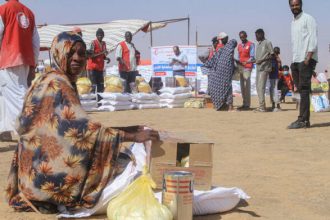A dramatic chapter in Bangladesh’s political landscape deepened on Thursday as a Dhaka court handed ousted former prime minister Sheikh Hasina a 21-year prison sentence in a series of corruption cases. The ruling comes just one week after she was sentenced to death in absentia for crimes against humanity linked to a violent crackdown on a student-led uprising last year.
Hasina, 78, has been living in India and has refused to comply with court orders demanding her return to Bangladesh. Her fall from power was swift. On August 5, 2024, she fled the country by helicopter as massive student protests erupted nationwide, accusing her of autocratic rule and widespread abuses.
The latest verdict involves three separate cases filed by the Anti-Corruption Commission (ACC), accusing Hasina of illegally acquiring valuable land plots in the capital’s outskirts. According to Judge Abdullah Al Mamun, Hasina’s actions reflected “a persistent corruption mindset rooted in entitlement, unchecked power, and a greedy eye for public property”. The court stated that she manipulated state mechanisms to benefit herself and close family members.
Her children, Sajeeb Wazed and Saima Wazed—the latter a senior United Nations official—were each sentenced to five years in prison in the same cases.
Public prosecutor Khan Moinul Hasan expressed dissatisfaction with the court’s decision, saying the prosecution had sought harsher punishment. He confirmed plans to appeal and consult the ACC on further steps.
Bangladesh remains shaken in the aftermath of Hasina’s ousting. The United Nations estimates that up to 1,400 people were killed during government crackdowns as she attempted to retain power. With national elections scheduled for February 2026, violence, instability, and deep political divides continue to cast a long shadow over the country.
Hasina maintains that both the corruption verdicts and the death sentence are politically driven, calling them biased attempts to erase her legacy. She also faces additional corruption trials alongside her sister Sheikh Rehana and other family members, including British MP Tulip Siddiq.
In the end, beyond the political chaos and courtroom battles, the story reflects a deeper struggle within Bangladesh — a struggle for accountability, transparency, and the future its people hope to reclaim.








